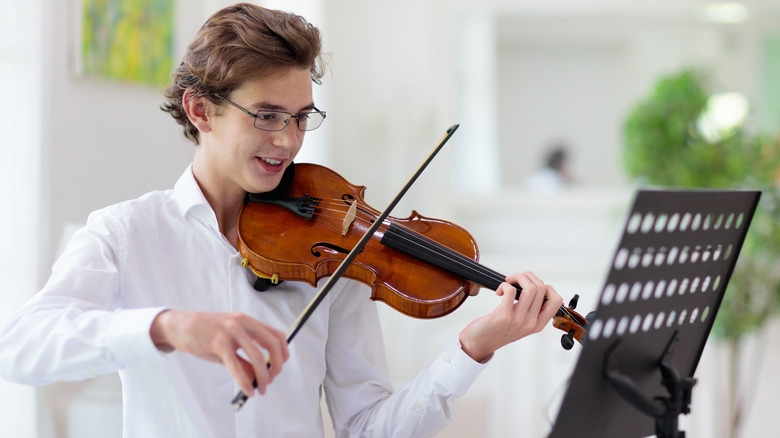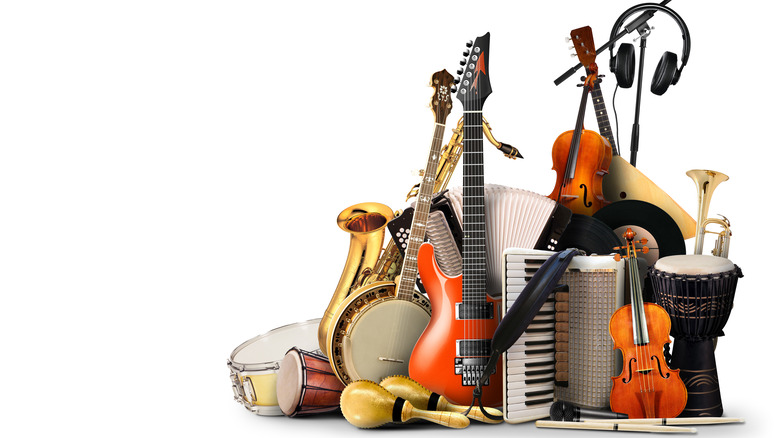What Happens To Your Brain When You Play A Musical Instrument
Despite the fact that over the years the arts have often been the first to go when it comes to school system budget cuts, research reveals that the arts play a crucial role in human development and are just as essential as science or math when it comes to an education (via Science Daily). In particular, playing a musical instrument offers a fascinatingly wide range of cognitive effects that can benefit us even long after we decide to call it quits.
Playing a musical instrument requires us to engage different parts of our brain simultaneously, according to experts at Penn Medicine News. When playing an instrument, we activate multiple parts of the central nervous system, including the peripheral nervous system (which controls motor function), neurotransmitters involved in the brain's executive function, and the neurological response to the sensory input. Routinely exercising the brain in this way results in improved mental ability.
In fact, for students, playing a musical instrument could actually help boost grades in other subjects. A 2019 study conducted by the University of British Columbia found that students who study music in high school perform higher in the subjects of English, math, and science than those not enrolled in music classes. Indeed, exam results revealed that students who began playing music in childhood ranked as much as one academic year ahead of those who had never played an instrument.
Memory, cognitive function, and reaction time can all be improved by playing an instrument
But taking up a musical instrument at a young age doesn't just provide short-term benefits — research indicates there are long-term benefits as well. A 2011 study conducted by the American Psychological Association determined that the more years a person spends playing an instrument over the course of their life, the higher they tested in areas of memory, cognitive ability, and neuroplasticity in old age. Even those who had quit playing earlier in life still cognitively outperformed those who had never learned to play at all. Additionally, a 2017 study conducted by researchers at the University of Montreal found that people who had played one or more instruments for at least seven years reacted more quickly to both auditory and tactile stimuli than non-musician participants. So whether you decide to take up music lessons as a hobby or to pursue it as a career full-time, it can't be denied that there are a myriad of health benefits to be gained from playing a musical instrument that can last us a lifetime.


